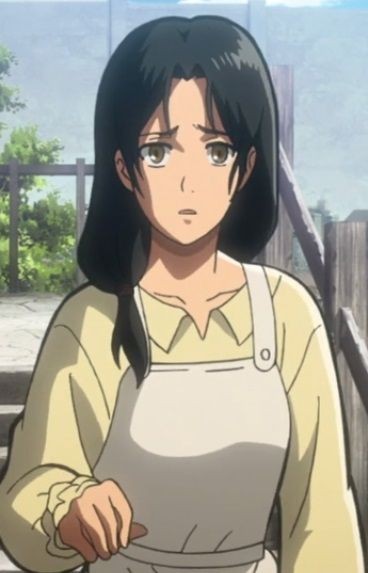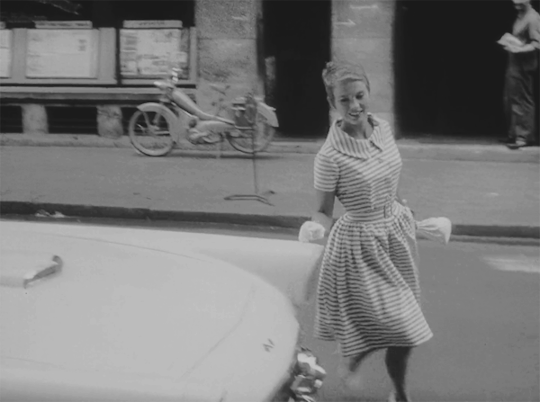#namely my thesis
Text


htn ch. 6 / htn ch. 51
naming as ownership, control, violence, etc. etc.
#naming as violence ️🔥️🔥️🔥#<- somehow a subheading of the great john gaius thesis#anyway. the lolita of it all#this has GOTTA be my favorite instance of someone throwing johns shit back in his face#talk shit to mercy get hit by mercy ykwim#also the proceeding line she throws back in his face word for word. but this part is much more interesting to me#mercymorn the first#john gaius#harrow the ninth#aust.txt
264 notes
·
View notes
Note
The only thing missing for Ned to be a real mother screwed by the narrative is the dead mother's hairstyle.
For reference:

SAYS WHO!!

#ned stark#asoiaf#valyrianscrolls#trisha elric & Mom Jaeger (forgor her name) eat your heart out#new dead mom in town and he's a 35 year old father of six#THIS IS FOR YOU AND YOUR HUGE BRAIN TUMBLR USER MA-DU#I broke my promise of not drawing anything until my thesis is finished bc the image WOULDNT LEAVE ME ALONE
264 notes
·
View notes
Text
my jgy thoughts have been expanding and adapting and roiling and toiling etc etc etc and all of it is coming down to me affectionately marveling at this character. he’s cut-throat. he’s cunning. his kindness leaves lasting impressions. his mercy is what predates his demise. he’s one of the few cultivators who helps those in need. he will sacrifice them if it benefits him. he loved. it didn’t last. it killed him. it orchestrated his downfall. he’s a genius. he’s paranoid. he compartmentalizes. he splits the world into who he would sacrifice and who he would not. people he loves and people he would sacrifice are not mutually exclusive. he’s filial to a fault. it was all for his mother. he is a study in assimilating to survive. the results vary. he manipulates the herd mentality to his benefit. it is turned against him. he is killed for the one thing he didn’t do by the one person he wouldn’t sacrifice. it is still somehow better than what the hive-mind cultivation world would have done. i love this tragic kaleidoscope of a character.
#this was sparked out of my love for jgy#my in-the-tags hot take is that i am just increasingly bored by unironic jgy did nothing wrong takes adfksks#like the statements that he is a victim and he has done helpful things and he has done harmful things. are also not mutually exclusive!#and i think that makes him fun :]#if jgy wasn’t a little fucked up he’d be boring#like it’s /fun/ to me that imo he was overtly targeted by nmj#but nmj was also like the last like of defense before the jins completely abused their power#like! we love duality. we love contradictions#i won’t even say ‘ask me abt how jgy views the concept of hurt’ bc i’m gonna tell you!#i personally believe that he was being honest when he said lxc was the one person he didn’t want to hurt#i just also believe that he doesn’t see the things he has done#namely the use of the fucked up song of clarity#as things that would hurt lxc#bc they weren’t done /to/ him!#lxc was just a pawn in that moment#and while i believe that jgy most of the time did not. pawn-ify. lxc#by taking the song of clarity (something entrusted to him by lxc)#and using it to kill nmj (someone jgy cared abt)#that hurts lxc!#i feel embarrassed i was like ‘let u tell me u my big jgy thesis paper’ and idk if it landed#but i feel like jgy sees ‘hurt’ as what is done to you#not what happens around you
480 notes
·
View notes
Photo



DREAM AND THE CORINTHIAN / FRANKENSTEIN AND HIS CREATURE (insp.)
#thesandmanedit#the sandman#sandmanedit#netflixedit#dream of the endless#the corinthian#userbecca#tusermyra#corintheus#if it's that even the name#i didn't really intended this to be shippy i was just losing my mind over the parallels#a few weeks ago with a friend#and you can always count on me to have frankenstein brainworms since i managed to write a whole thesis about it#so yeah take it as it is#something that should've been posted 5 months ago probably thanks goodbyeù
906 notes
·
View notes
Text
hello shadowgale nation
#i feel sick i love them so much#been working on this for like five hours straight. okay time for one million tags#baldur's gate 3#bg3#shadowheart#gale of waterdeep#gale dekarios#galeheart#shadowgale#gale x shadowheart#i dont remember what the most popular ship name is so youre getting them all#no one fucking understands them like i do. one day ill post my thesis. one day#had to replace the models for all of these except the epilogue clips because im an idiot and didn't save her romance scenes from my gale ru#🫀
94 notes
·
View notes
Photo


A BOUT DE SOUFFLE (1960)
#when i was in college i had a new york herald tribune sweater that was the pride of my life#i even had polly maggoo's shirt with her name on it#tell me you wrote your thesis on the women of the new wave without telling me#a bout de souffle#jean seberg#the french are glad to die for love#sixties sweethearts#*
192 notes
·
View notes
Note
Would love to hear any thoughts on the codification of the poet-persona over time? 👀
Ok so in the spirit of the ask game, I am not checking any citations on this whatsoever, but if you want those lmk (though they uh. largely do not exist for rímur-poets specifically, because only me and Hans Kuhn have ever cared).
This is going to require some context because, as established, the number of living people who know and care about medieval rímur can be counted on my two hands. Probably without thumbs. So, rímur are a poetic form that developed in 14th cen Iceland, which look kind of ballad-y, in that they often use four-line stanzas with ABAB end-rhyme, though actually the ballad tradition in Iceland is quite distinct (on which, see Vésteinn Ólason, The Ballads of Iceland). End-rhyme was very exciting for Icelandic poets because it was only previously a thing in some uncommon types of skaldic metres, but rímur (as their name suggests) have end-rhyme as a defining feature and rapidly become The dominant form of poetry in Iceland until well into the 19th cen.
There are two very distinctive things about rímur, other than their metres: 1) they almost never tell 'new' stories; almost all rímur narratives are attested earlier in other forms, usually in prose, which can sometimes lead to the fun cycle of saga -> rímur cycle -> old saga is lost, new version is written based on the rímur -> more rímur are written based on the new saga -> repeat until the heat death of the universe; 2) as the form develops, it acquires introductory stanzas known as mansöngvar, a term which elsewhere usually means 'love poetry', although that's not really what they're doing here.
Mansöngvar are verses, sometimes in a different metre to the rest of the canto they're attached to, in which the poet speaks directly to the audience. In the medieval period, they're pretty short and often don't say more than 'look, I made you some poetry', but as time goes on, they get more and more elaborate, and the character of the poet begins to develop some quite distinctive traits. What's interesting here is that rímur were (certainly in the medieval period; less certainly later on) performed aloud, presumably by the poet, so there's definitely some questions to be asked about how accurate the poets' self-descriptions are when presumably the audience could go 'you're not pining away for love, Jón Jónsson, I've met your wife!'
So anyway, these mansöngvar are often linked to the medieval German Minnesänger tradition (er. The actual German word might be slightly different because I still don't speak German despite my PhD supervisor's pointed remarks), which is more overtly love poetry and which sometimes features the poet as an abject and despised lover of some cruel lady. This is something rímur-poets from the later medieval period and onwards have an incredibly good time with. You may be familiar with the story of Þórr wrestling with Elli, the personification of old age in the form of an old woman. There are at least two medieval rímur poets who have a whole extended passage about 'oh alas, when I was young I was a terrible flirt but now I'm old and no women like me, except oh no, I am being courted by this ugly old giant lady; Elli is the only ladyfriend for me now, wah'. it's very playful, it's very fun, it's drawing on this general sense that the poets put forward that they're poetically gifted, but romantically unlucky, which is kind of a Thing for poets across a lot of European literature (and probably more broadly, but I don't know much about that), and is especially pronounced in the earlier Icelandic sagas about poets, which usually feature poets failing to win the love of their life for various reasons (sudden attack of Christianity; sudden attack of magic seals; sudden attack of Other Guy With Sword; etc). So in evoking this, rímur-poets are situating themselves in this existing Image of the Ideal Poet, but doing so in a way that ties them into the specifics of the Norse literary/mythological tradition as well. Poets are also frequently old and tired (same, bro), and a statistically improbably number of them are also blind (although that might just be two guys we know about who were really prolific; most rímur are anonymous so it's hard to say. But it is perhaps convenient that this also links them to A Great Poet of Old, namely Homer).
The other thing that rímur-poets really like to bring up in their mansöngvar is the myth of the mead of poetry, which I will not recount here except to say that Óðinn nicked it from a giant, and also that some dwarves used it to buy safe passage off a skerry once, so it's poetically termed 'ship of the dwarves' because it's the thing that brought them safely across the sea. Every single medieval mansöngur, if one exists at all, refers to this myth in some way, even if it's just by having the 'I made you some poetry' bit use a kenning for 'poetry' that references the myth.* And poets have a lot of fun with this too! Iceland's a coastal community, they know about boats, so you get these extended metaphors about poets trying to board a boat to sample the mead of poetry and finding only the dregs because other, better poets got there first. Or they will describe the process of poetic composition in terms of ship-building: 'Here I nail together Suðri's [a dwarf name] boat'; 'Norðri's ship sets out from the harbour [= I'm about to start reciting the main bit now]'; 'the fine vessel has now been wrecked on the rocks [=I'm going to stop reciting now]'. They'll also speak of poetry as smíð, which means a work of craftsmanship, usually physical craftsmanship (obviously cognate with smithing in English), and of brewing the ale of Óðinn, so they're really into metaphors of physical craft when it comes to the intellectual craft of poetry, which I think is really neat.
*kennings = poetic circumlocutions, e.g. 'snake of the belt' is a sword because swords are vaguely snake-shaped and hang from a belt. Common poetry kennings are '[drink/liquid/ale/wine/mead] of [any of Óðinn's literally dozens of names]' e.g. 'Berlingr's wine', and the aforementioned 'ship of the dwarves' - poetic Icelandic has literally dozens of words for different kinds of ships and also literally dozens of dwarf names, so you can get a long way without repeating yourself.
So all these things that I've mentioned that poets like to bring up - old age, unluckiness in love, poets as craftsmen - become more and more tropified as time goes on, which in turn leads to these imaginative and extended reworkings of the metaphor. No longer can you just say 'I'm old and no one fancies me', no, it's 'My only assignations now are with Elli, wink wink, here's a long description of our date'. So you end up with this very codified image of The Ideal Rímur-Poet as an old man,* ideally blind, ideally unmarried, incredibly self-deprecating about his poetry, and because that's how everyone else talks, it's self-reinforcing.
*there is one (1) known female rímur-poet from the medieval period, the poet of Landrés rímur, who unfortunately didn't write many mansöngur stanzas but is doing her best with the 'unlucky in love' bit, although her lover (male) seems to have died rather than ditched her, which is a novelty.
Anyway, it's cool and weird and fun and as I say, only me and Hans Kuhn care, academically speaking.
#lol 1260 words here. which is. maybe 10 minutes of actual speaking time but OH WELL#asks I have answered#if there are bits that I haven't explained well lmk. I have a warped idea of how much the average person knows about Norse literary history#because I *am* on my Stan Rogers Wife Guy kick at the moment please imagine Jón Jónsson holding a guitar#also. lol. I am extremely fucking doxxable every time I talk about rímur so if you do know my full legal name. keep that shit to yourself.#but also. go read my phd thesis. if you like the shit jokes in this post you'll love 70k of them concealed in academese
32 notes
·
View notes
Photo

workin’ the graveyard shift
#my art#the graveyard shift#hes the mc! from that story! for my thesis :)#technically this is a drawing for day 1 of a drawing challenge#but erm im not doing all of that this month LDKFJF so have hiM#and yes hes emo and trans and named himself after mikey way <3 slay!
503 notes
·
View notes
Text
Guess. What. Fucking. Happened. Again.
#Matt the Laptop did what it's named for (fucking dying on me)#and I am convinced it has a dedication to dramatic timing#bc I have application deadlines this weekend#at least all my thesis stuff is saved online so I can still access it though#but the zettelkasten stuff I *thought* I'd been saving to dropbox is not the most recent version#i am going to scream#personal#The Laptop Saga#is a tag I never wanted to use again!!!!!#i did not pay to get a cable fixed for this to happen again less than a year later
22 notes
·
View notes
Text
I need the ability to transfer my yapping skills into writing my thesis. Every time I think about doing it I die inside, and then turn around and write 2 pages worth of AU yapping. I'd be unstoppable if I could turn that into something productive
#my thesis topic isn't even bad#it's on word formation and pokemon names#great topic but aughhhhhhh why is it so hard to find motivation for it#gekko.txt
20 notes
·
View notes
Text

plug in...
#my vision for this piece was grossly undermined by my skill level#rip in peace laser i tried#everyone's favorite shirt also a little sacrificed in the name of electric veins#unofficial name for this piece is lighting bug#thesis phrase “touched by the gods”#did i defend my argument sufficiently? eeehhhhhhhhhhh.#what are we even doing here#tar.psd#muse art#muse band#matt bellamy
32 notes
·
View notes
Text



everything immediately proceeding and following the part of "the last days of judas iscariot" where judas spits in jesus' face, btw. if you even care.
#there's actually a bit more but it would make no sense whatsoever out of context. same w the scene that follows#which is in fact the last scene in the play#so I didn't include it even if it's like. part of the thesis of the story#ANYWAY. my name is dvd normal#the last days of judas iscariot#i say stuff
51 notes
·
View notes
Photo

finished up some turnarounds for my thesis film’s main character!
#chris animates#if you've been following my blog for a while you might've seen them before#he just goes by Rabbit now!#mostly because i cant decide what to call them.#the creature on his back is named Cloak#you can see how creative my naming conventions are of course.#youll probably see more of them soon#i'll be posting updates about my thesis film as the semester continues
419 notes
·
View notes
Text
the pure embarrassment of sending a ”oops I fucked up & will send this assignment a couple days too late sorry abt that”-email :’) noooooo
#I guess it’s better than to just send it late with no warning#I hope I gave myself enough time bc istg if I’m gonna have to send ANOTHER one of these I’m just going to change my name & move I think#this is a personal reminder to myself that sometime procrastination has consequences even tho im good at getting away with it usually#istg my thesis advisor hates me at this point I’ve returned basically everything a bit late#idk what has happened to my time management skills like why do they suck so bad rn#very much in a ’’just gotta get through this week’’ mindet and it’s only monday#march 2024#2024
22 notes
·
View notes
Text
Just saw the new hunger games movie and immediately started plotting an icemav au...
Someone please talk me out of putting Carole in the arena with Mav. It feels so evil but also it is the hunger games.
#top gun fanfiction#icemav#I'm thinking of making Ice a capitol citizen kinda like coriolanus but also nothing like coriolanus#mav and the bradshaws are from the lumber district#both goose and carole's names are drawn in the reapingbut mav volunteers for goose so bradley wouldn't be orphaned#better yet#talk me out of writing that at all bc i really need to focus on my darn thesis
42 notes
·
View notes
Text
if there's one thing you gotta know about me is that im always going to reccomend the story perpetual mourning aka the first story in batman black and white 1996 like legitimately nothing else about me matters more than my intense insistence that everyone should read the short story perpetual mourning from the first issue of the comic batman black and white (1996) nothing matters more to me than being an advocate for everyone reading the first 8 pages of the 1996 comic batman black and white so they can experience the story perpetual mourning
#literally i will reblog it every single day without fail if it convinces even one of you to read it its so short and soooo :((((#one of my top moments of getting into batman and reading it for the first time and having to put my phone down to process my emotions#blog thesis#putting this on my own post idc. my name is ransom and i like body hair & the story perpetual mourning.what else do u need to know about me#perpetual mourning posting
104 notes
·
View notes